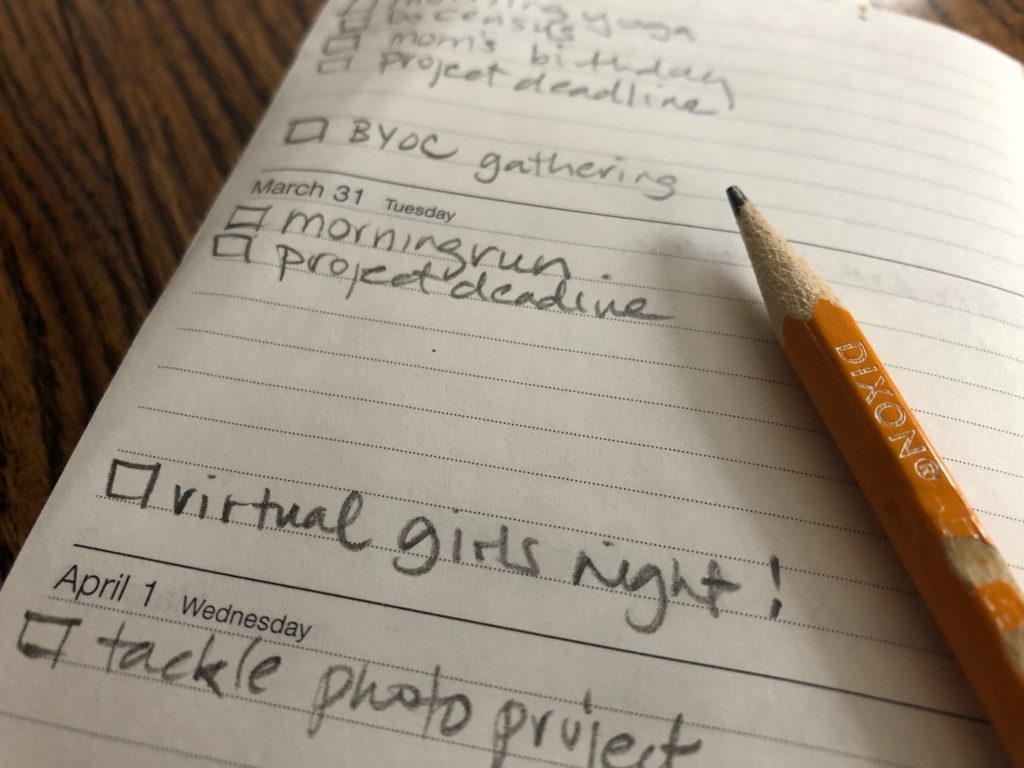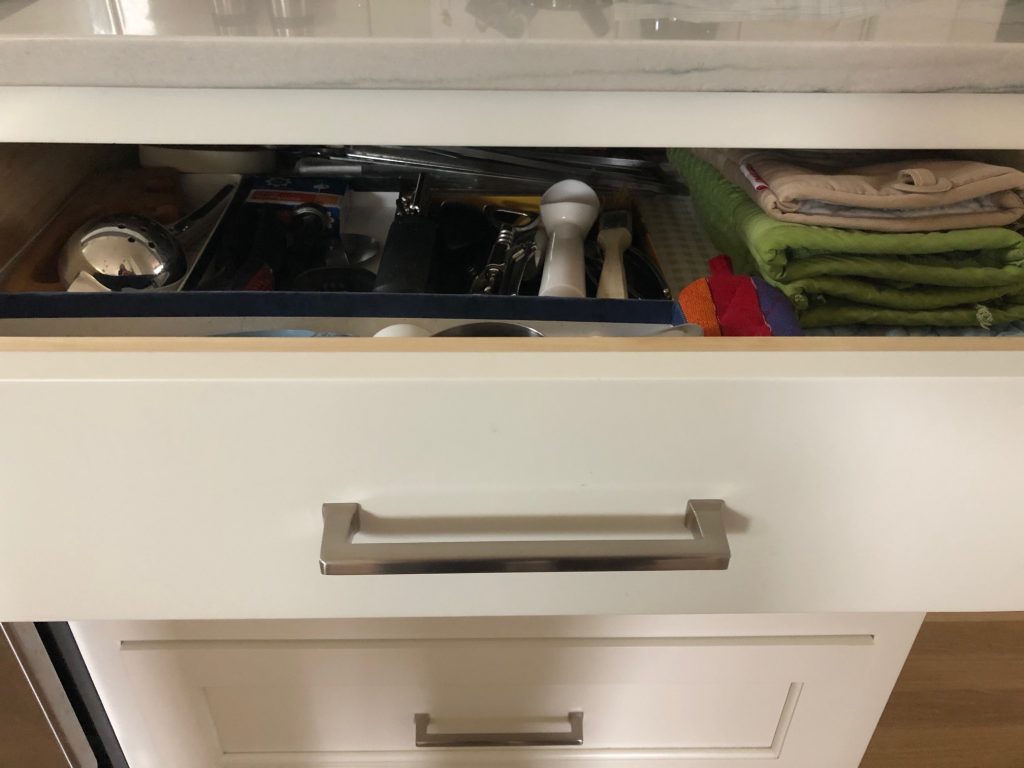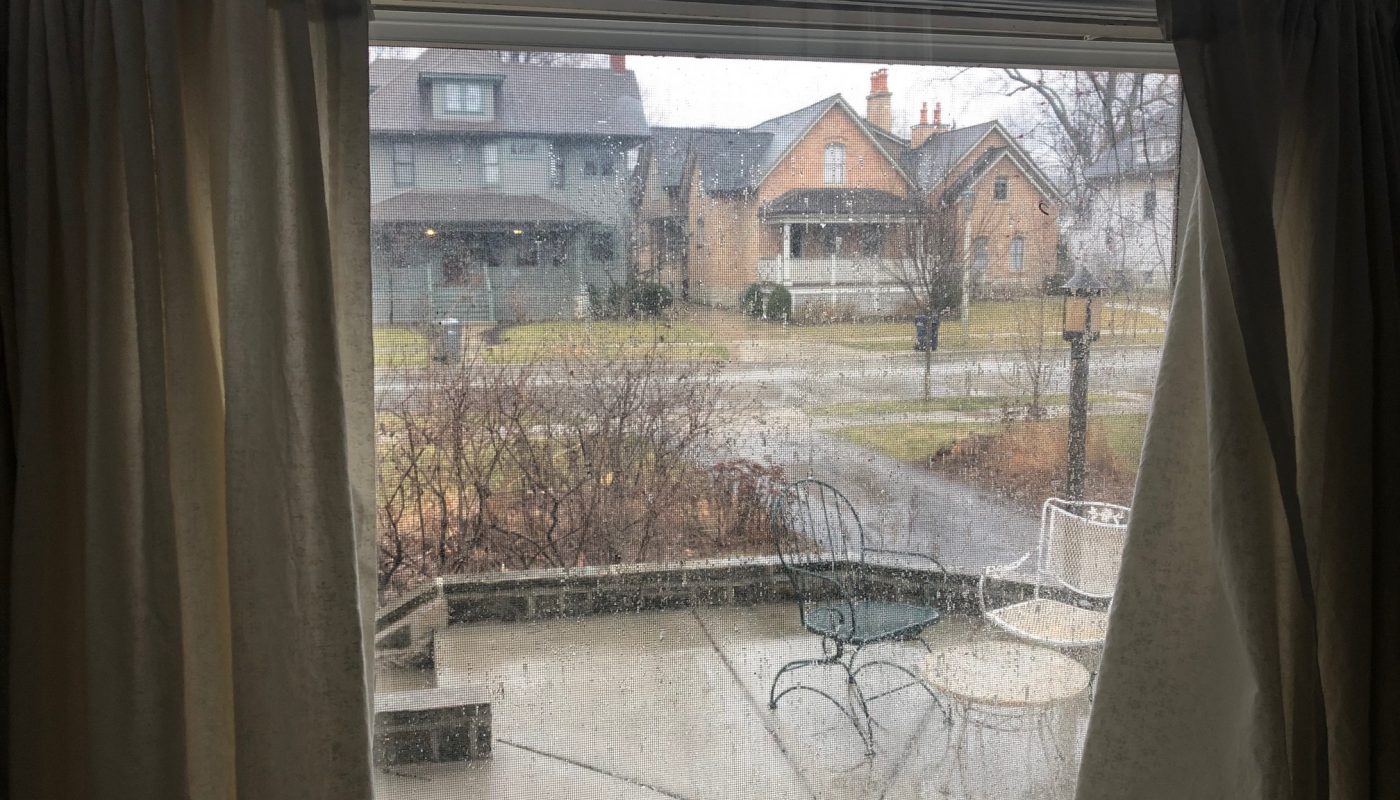While we’re all stuck at home, waiting out the coronavirus pandemic and social distancing to #flattenthecurve, we may be going through a range of emotions: anxiety, boredom, frustratation, fear. I know I am. We hear reports of people getting sick. People are losing income with reduced work hours and potentially their jobs. We’re watching the stock market tumble, and if we have retirement savings, we’re worrying about that too. Families are spending more time together. If we live alone, we’re struggling with loneliness. Parents are learning the joys (?) of home-schooling and gaining a new appreciation for teachers. If we’re working from home (WFH), we’re dealing with new “co-workers” — whether that be our kids, spouse or cats (check out #remotework on Twitter for some laughs).
Lots of good things may be happening, too. We’re cooking and eating more meals together. I’m hearing reports that people are getting their homes organized (not happening yet at my house!) We’re working through our boredom in fun ways. And we’re learning the proper way to wash our hands.
Here are 5 ways to cope with social distancing during the COVID-19 emergency.
1. Create a structure for your day.
Whether you’re a Type “A” person who thrives on structure or a more relaxed personality that goes with the flow, it may feel good to create a sense of purpose and normalcy. If you live with others, work on a daily schedule — it can be as loose or structured as you want it to be. Be sure to include time for nutritious meals, exercise, and sleep, as well as work, play and time together and alone. Create rituals for morning and bedtime to ease in and out of the day. Once you have a loose schedule, it’s helpful to create some goals as well. See below for ideas on what kinds of personal “missions” you might give yourself, then schedule them into your date book or calendar so you can be sure to achieve them.

2. Reach outward to your community.
Social distancing entails physical distancing. But in times like these, it’s important to become more involved in our communities. Set some time aside to check on elderly neighbors and offer to make a grocery store run for them. Donate to a local food pantry or homeless shelter.
And stay connected to your friends and neighbors. Social isolation isn’t good for anyone. Call the neighbors, bundle up, get out your lawn chair and have a BYOC (bring your own chair) chat on your front lawn — six-to-ten feet away, of course. Plan time to pop open a bottle of wine at home and have a virtual “Girls Nights” via Facetime or Zoom with your BFFs.
3. Support local businesses.
This time is particularly hard on the small businesses in your community. #Shoplocal! Support your favorite restaurants by planning to order take-out a few times a week. Cheer up your home with a bouquet from your favorite florist each Friday. If you need to cancel a hair appointment or your house cleaner, try to pay them their usual tip or fee — or at least a percentage.
Is your mother’s birthday coming up? Make an online order from your favorite local store (She would love our Classic Frame Monogram Note).
Wedding parties are being canceled, but some brides and grooms are still getting married. Send them a gift from your favorite gift shop (Our eco-friendly, engraved cutting boards are one of our most popular wedding gifts). Some stores are closed completely. Others are open by appointment. Check if they have a website or are taking orders by phone.
4. Tackle home projects.
For many people, the forced time at home presents an opportunity to get some of those projects completed: you know the ones that have been hanging over your head for months or even years? I have about 10 years of family photos to organize and sort into albums and frames.
Schedule time to clean out your closets, the tops of your desks and your kitchen drawers — then reward yourself with a pretty new notepad. Tired of staring at your walls? Get outside. For many people with yards, it’s time to plant early season vegetables like lettuce, peas and spinach. Get your spring cleaning done — clean windows, dust ceilings and woodwork, scrub your porch, etc.

5. Take a sabbatical.
A sabbatical is a time for introspection and deep research. For many of us, taking an extended period of time off isn’t do-able. But if you think about these next 2-4 weeks as an opportunity to do some deep thinking about your life, you can carve out some quality time. Avoid television bingewatching. Cut down on social media.
Then dig out your journal and start writing daily. If you have the budget, start working with a life or career coach — many work virtually. Schedule time each day to write a personal letter to each of your loved ones and tell them how much they mean to you.
Slow down. Begin meditation, yoga, running or other exercise regimen that involves deep breathing and quieting of the mind. Get close to nature. Look at the trees. Hear the birds chirping. Let thoughts bubble up. Listen.
What are other things you are doing to cope with social distancing? We’d love to hear your ideas!




